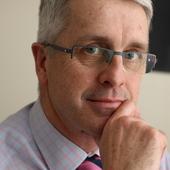Playing the piano can be bad for the soul
Writing is such hard work that those of us who dabble in prose often dread looking at the “white bull” – Hemingway’s term for a blank sheet of paper waiting to be filled up with our words. Will we defeat the bull today? It’s always a tossup.
The stress and strain of writing perhaps explains why so many writers seek an outlet in the visual arts, particularly painting and sculpture. Visual output satisfies the hunger to create, and, as a bonus, the art form is more free and spontaneous. Great writers have produced great paintings. Look at Victor Hugo, Guillaume Apollinaire, Rudyard Kipling, Dante Gabriel Rossetti.
Even more interesting to me is the somewhat lesser phenomenon of pianists who paint. They are seeking the same release, the same soulagement, the same need to liberate themselves.
Over the past few years I have identified a handful of pianist-painters and captured some of their thoughts. My hunt continues. Beware, however. A warning comes from the late composer-critic Virgil Thomson who wrote in one of his polemical pieces, “The music profession is more secret than most … No other field of human activity is quite so hermetic, so isolated.”
Some of my pianist friends will even admit that too much time at the keyboard is ultimately bad for the soul. They are weary of learning difficult pieces by muscle memory, and some have been driven to eccentric solutions. The late Charles Rosen, a much-recorded devotee of the Romantics, once told me he dealt with this dilemma by propping a book of detective stories on his piano to read as he repeated tricky passages 500 times.
Is that art? I don’t think so. True artists seek self-expression, artistic adventure. They feel the urge to own their work, and written music strictly limits departures from notation. Some musicians eventually realize they are mere messengers, but of what messages? (Deciphering Chopin’s detailed dynamic markings, they ask themselves, “What is he saying here? What emotion does he want me to project?”) If they stray too far, their teachers steer them relentlessly back to the page.
My advice to pianists is to grab some pots of paint and start splashing. Painting has a “touch of the miraculous” about it, one artist told me recently. Of all the arts, painting will grant you the most license for creative release.
Moreover, I find similar urges among academics, business executives, and even one magician, David Blaine. Tony Bennett is a fine painter. The editor of this site, Olli Raade, has turned himself into an excellent artist.
Alexander Motyl, a novelist and political science professor at Rutgers University, Newark, N.J., finds painting a release from the straightjacket of words – much as musicians fight the constraints of music. “There are no words, no speech, no ‘thinking’ in my painting,” he tells me. “It is just lines and colors and spaces and visual creations. Stuff happens and, suddenly, you realize, gosh, this is really good.”
Somewhere among the painters I find myself, once a struggling pianist, then a working journalist, now a successful portrait painter. I get chills of the “miraculous” when one of my portraits seems to speak to me. My first book of music-makers’ ecstatic faces * has just appeared and my recent one-man show of 70 watercolors in Bordeaux attracted press coverage and a few commissions.
While frustration has driven some leading musicians to the drawing board, reasons of course vary. Among those who turned to the pot-and-brush are Felix Mendelssohn, John Cage, Morton Feldman, Arnold Schoenberg, George Gershwin, former Juilliard professor David Dubal, the British polymath Stephen Hough, the Argentine virtuoso Ingrid Fliter, Boston’s Russell Sherman, British composer-pianist Richard Rodney Bennett, the Israeli pianist Ilana Vered, The German composer-painter Heiner Goebbels, and the early work of Alfred Brendel. Some Chopin drawings are on display in Warsaw. Ferruccio Busoni, Edward MacDowell, Charles T. Griffes, and Enrique Granados all left visual art among their legacies. Even Mozart doodled funny faces in the margins of his scores.
Hough tells me in an email exchange that he finds painting more release than relief – a way to explore a different branch of creativity. In playing the piano, he says, “sounds evaporate into the air… but a painting stands as a thing, complete.” As he put it in a separate interview, “I’ve always felt that playing the piano just by itself was not enough.” Painting allows him to find a further outlet. “I feel like I need to move in other directions,” he said.
Dubal, pianist, broadcaster, pedagogue and accomplished abstract artist, believes that drawing and painting are things we should experience “all the time”. It would “make for a more peaceful world”, he tells me. “Painting and drawing have taught me to see and remember. The hand moving on any surface with brush or pencil is a major activity of the unconscious and conscious mind. One must be absolutely ready to let the hand activate its power. It is an adventure and a gamble.”
He quotes designer William Morris as writing to his painter friend Edward Burne-Jones, “If any man has any poetry in him, he should paint ...”
In one of the quirkiest cases of backward cross-fertilisation, John Cage was so inspired by Robert Rauschenberg’s “white painting” (blank canvasses that Cage called “mirrors of the air”) that later the same year he composed his most famous work, 4’33”, at which a pianist sits quietly at the keyboard but does not touch it.

Left-handed violinist Paul Klee was talented in music and art. He ultimately embraced art, dropping the confines of music altogether and becoming a leading avant-garde painter.
Like Hough, I too find release in painting, sometimes spontaneously. I am often seized by the impulse to sketch a player when I see him or her emotionally high in public. Musicians’ faces and body language provide great material for the artist, inspiring my approach to their portraits -- joyful, tragic or just deep concentration.
Conductors are some of the most emotive performers in public. Yutaka Sado, Kent Nagano, Paul Daniel, and of course Leonard Bernstein lose themselves in the music. I have seen Bernstein leap so joyfully that both feet left the podium at the same time.
Studying faces puts the artist in a spooky symbiosis with his or her subject. I know I have captured the pianist when I can hear the music or see the subject come to life. I stop short of a deeper spookiness, however, in the very spiritual conductor Seiji Ozawa who also gets that “miraculous” chill. Intensive study of an orchestral score eventually gives him the feeling that it is his music, that he composed it. After he made that statement in a television interview, he added that he quickly comes to his senses and starts beating time again.
Other versions of this article appeared on Facts and Arts September 11 and on the current “The Cross-Eyed Pianist”.
A collection of portraits of musicians by the writer, Michael Johnson, is available at Amazon - [please click here]
This article is brought to you by the author who owns the copyright to the text.
Should you want to support the author’s creative work you can use the PayPal “Donate” button below.
Your donation is a transaction between you and the author. The proceeds go directly to the author’s PayPal account in full less PayPal’s commission.
Facts & Arts neither receives information about you, nor of your donation, nor does Facts & Arts receive a commission.
Facts & Arts does not pay the author, nor takes paid by the author, for the posting of the author's material on Facts & Arts. Facts & Arts finances its operations by selling advertising space.




















